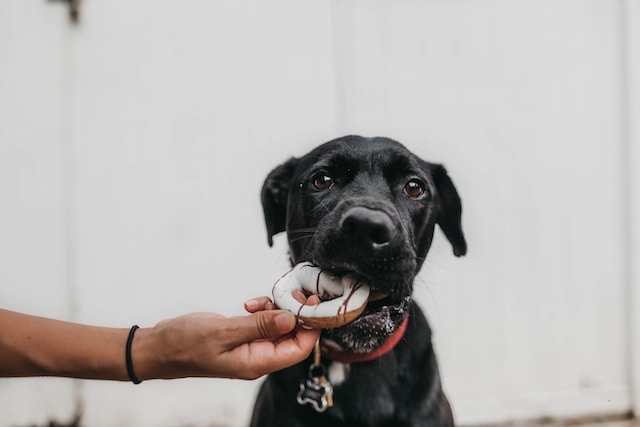Dangerous Food for Dogs – Things you need to know

Although dogs are part of our family, feeding them human food can be harmful. Dogs are not accustomed to eating oily or greasy foods like humans and consuming too much of it can cause stomach discomfort and diarrhoea. It is important to understand which foods are toxic to dogs and avoid feeding them.
Dangerous Food for Dogs
Chocolate and caffeine
Everyone knows that chocolate is harmful to dogs. Unlike cats, dogs do not understand portion control when it comes to eating.
Symptoms of chocolate poisoning depend on the amount and type of chocolate consumed, and can include vomiting, diarrhoea, frequent thirst, abdominal discomfort, lethargy, muscle tremors, irregular heartbeats, fever, seizures, and death.
The higher the purity of chocolate, such as baking chocolate or cocoa powder, the greater the harm to dogs because of the higher concentration of caffeine and theobromine, both of which are toxic to dogs.
Do not allow dogs to come into contact with caffeine-containing drinks either. Read this article to learn more about the dangers of dogs eating chocolate.
Grapes and raisins
Although grapes and raisins are not harmful to some dogs, they can cause kidney failure in others. Simply put, it is not worth taking the risk, just don’t feed it to them!
Symptoms such as vomiting, lethargy, and diarrhoea may occur within 12 hours of ingestion. If left untreated, these symptoms may lead to dehydration, decreased appetite, frequent urination, and reduced urine output.
If a dog eats grapes or raisins and shows these symptoms, take them to a veterinarian immediately. These symptoms may evolve into chronic kidney disease and the dog may die of kidney failure within three to four days.
Alcohol and raw dough
Trace amounts of alcohol in drinks, syrups, and raw dough can be harmful to dogs. The ethanol in these foods, as well as the hops in beer, can cause alcohol poisoning, which includes symptoms such as vomiting, disorientation, fever, restlessness, heavy breathing, muscle tremors, and seizures.
Dogs showing symptoms of alcohol poisoning should be taken care of by a veterinarian until they recover, as their organs may fail or they may die. The yeast in raw dough can cause stomach bloating, tissue damage, and breathing difficulties.
Xylitol
Xylitol is an artificial sweetener found in sugar-free chewing gum, candy, etc. It can be toxic to dogs if ingested, causing symptoms such as vomiting, loss of coordination, fever, restlessness, heavy breathing, and seizures.
Dogs showing symptoms of xylitol poisoning should be taken to a veterinarian immediately, as it can cause liver failure and death.
Onions and Garlic
Onions and garlic are toxic to dogs, and so are other vegetables like shallots, scallions, and chives. These contain compounds that can cause gastrointestinal problems, anemia, and damage to red blood cells in dogs. Garlic is five times more toxic than onions.
Although symptoms may not appear for several days after ingestion, dogs may experience weakness, lethargy, and discoloured urine.
Other human foods that can be harmful to dogs
This includes dairy products, which can cause diarrhoea and food sensitivity, macadamia nuts, which can cause weakness, paralysis, and muscle coordination problems, avocados, which contain persin, a fungal toxin that can cause mild stomach upset, and bones from chicken and fish that can break and cause injury to the throat, teeth, or digestive system.
If you are unsure about whether a certain food is safe for your dog, consult a veterinarian.
In general, it is best not to feed dogs human food, as it can cause weight gain and other health problems. Instead, feed them specially formulated dog food to meet their nutritional needs.
